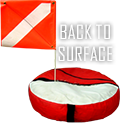Lost & Found by Bob Libbey
Technically speaking, almost everything we recover from the water has been lost. Some of it reached the bottom when a boat capsized or an object slipped out of someone's hand. Other items were simply discarded. This story describes how I lost something myself in Pewaukee Lake and how we attempted to recover it.
Diving Alone
I often dive alone. George Thorogood might sing, ‘You know when I dive alone, I prefer to be by myself.' Straight after certification, we would have never gone out alone. We were trained (and well trained at that) in the buddy system. We would try to stay in constant visual contact at the bottom. If we separated, we would search for a short time underwater and then surface to reunite the group. While it is a great system for sticking together, it became very impractical in the murky waters where we were diving. We could never see each other and we would have to surface far too often. Most of our bottom time was spent trying to hold the group together rather than investigating and discovering the underwater environment. Then when we started finding old bottles and the like, it became even harder to stay together. Your dive buddies were stirring things up. It gets too crowded and an area gets quickly over-searched right on top of each other. Additionally, we all had our own ideas on where to find things. Before long, we would all hit the water and go our own directions. Basically, we were diving alone; together.
Don't get me wrong. I love to dive with a group. It's fun to get together. It's great to swap stories with fellow enthusiasts and even more fun to compare finds. But it is a bigger production that takes a lot more planning.
Lost
On a gorgeous fall day, (Tuesday - October 30, 2007) I went out diving by myself. I did not bring a boat, but nonetheless, I wanted to get out to deeper water. I swam a long way from shore. When I sunk to the bottom, I began to find objects. I brought up a boom-box that will likely never play another tune. After that, I began to accumulate a few bottles. Normally, I will tuck these into the leg seams between the upper and lower parts of my wet suit. This allows me to keep my hands free to search and it avoids the need to pop up every time you find something. After I found six to eight bottles on that fall day, I surfaced to unload the items into my float. (The float has a flag that warns other boaters that there is a diver below. It also serves as a repository for objects until they can be unloaded after the dive). I planned to dump the bottles out quickly and then to sink right back down. I would not be up for long. However, there was a moderately strong wind blowing which was creating waves that were hard to deal with. I made a snap decision to inflate my Buoyancy Control Device ("BCD") for stability because I was riding too low in the water. I grabbed the air inflation hose and manually blew it up one breath at a time. Inflated, the BCD can act like a life vest at the surface. After a few puffs, I began floating without effort. I finished unloading the glass and prepared to get back to diving when I noticed a small tug behind my neck. This indicated that my float line probably tangled into the air feed at the top of my tank. No big deal. I considered ignoring it. It's not a serious problem to leave it. However, every time a big wave comes along when you are at the bottom, it feels like someone is tugging at you. It can be annoying. I reached for my regulator (the breathing apparatus) and I noticed that it too was tangled in the float line. That's it. I'm taking my gear off and fixing the line. I have done this many times. I unstrapped my BCD and pulled it completely off. I pivoted around, and sure enough, the line was looped on my first stage above my tank. I disconnected it. Then I put my face into the water and found my regulator. I untangled the float line easily. Next, I made sure that the line was clear of my gear so that it wouldn't re-snag when I put it back on. I spun around to grab my BCD and it wasn't there. It was gone. Wait. That can't be right. It's right here somewhere. I looked around for a moment; left then right. I felt that onrush of adrenaline from panic. Stay calm. It's right here. It's got to be here. No. No. NO! I scanned the surface. Nothing. I looked underwater. Visibility was poor and I couldn't see anything. How could this happen? I realized that when I inflated my BCD while unloading the bottles, I was just trying to stabilize myself at the surface. I didn't make sure that the BCD was completely full of air. I filled it only enough to float. Because my wet suit is fairly buoyant on its own, I was able to float with it on before my BCD was completely filled.
I began to try to swim down. It was harder than I thought. With the wet suit, I was floating like a large bobber. I was very buoyant and had to kick hard to get anywhere at all. I managed to get down only a few feet before I felt the need to breathe. Once I stopped kicking, I popped right back up. Come on, Bob. You can do this. I knew that this was easily possible. Once, when we were snorkeling in the ocean, we were descending thirty or forty feet to the bottom while holding our breath. Steve would even flip rocks at the bottom, catch an octopus, and then return to the surface to show it off. The ocean, however, has excellent visibility. Here, it was a foot or two and I was stirring it up at that. I forced myself down and kicked hard. The cold water was pressing against my mouth where I would normally bite down on my regulator. It was a strange sensation and a chilling reminder not to take a breath. I was getting myself down ten to twelve feet. I could not yet see the bottom. I kept trying to will myself to swim deeper but I couldn't do it. Now what? I carefully searched the surface for any sign of my gear. I hoisted myself up on my float as high as possible to expand my field of vision. I couldn't see anything. Okay. I was going to have to come back for it. I began to get bearings from shore. The trouble with using the shoreline as a landmark is that you can see anywhere along the shore from anywhere out in the water. It doesn't pinpoint your location very well unless you are very close to land. I drew an imaginary line from the nearest bay edge to a property on the opposite shore that passed through where I was. Then I imagined a second line going straight south to shore. I picked landmarks that best marked my position. However, I knew that I was a long way out. I tried to emblazon this position in my memory. (Later, I learned that it is a good idea to line up objects on the shoreline. For example, pick a flag pole and line it up to a tree behind it. This might give you a more accurately pinpointed spot). There was nothing left out there for me to do. If I couldn't recover my gear, it was time to swim back in.
I have had many long trips back to the boat or to shore with my gear on, but I have never had one without it. I had lost a ton of weight and drag. I rifled back towards shore at an amazing speed. Nonetheless, I had plenty of time to think about what had happened. My reflection led to only one conclusion. I have done a lot of dumb things while out diving, but this was the dumbest. This was so preventable. If I had fully inflated my BCD when I surfaced . . . If I had made sure that it was full before I pulled it off . . . If I had placed one of my air lines inside my float . . . If I had immediately submerged the second I realized that the gear was gone . . . I could still be wearing it. An ounce of prevention could have saved millions of gallons of searching.
Recovery
They say that mistakes are a learning opportunity. Sometimes that's true. Sometimes, though, mistakes are just stupid and expensive. Do you really need to learn, for example, that you shouldn't leave your car in neutral without applying the parking brake? Does your car have to roll away and smash into something for you to have the opportunity to learn? No. You knew not to do this before they trusted you with the keys. Just like I knew not to take the gear off of my back without making sure that it was floating first. So, the question remains. How much is this mistake going to cost?
I was hoping to minimize the price by recovering the gear. I'm not sure exactly what my equipment is worth. I have hundreds of dives with it. So, it is obviously heavily used. I do know, however, that it would be very expensive to replace. It would be fair to estimate that it would easily cost between 1,300 to 1,700 dollars to replace it new. I felt, though, that there was an excellent chance of recovery. I had assembled some of my closest dive buddies to assist in the search. Tom Fredrick, Jim Koutsoures, Steve Libbey and I were going to head out on the following Sunday to try to find it. This group represents thousands of hours of bottom time in murky Wisconsin lakes and rivers. If this crew couldn't find something, you could be sure that there was nothing to find. We all had great recovery skills and years of diving experience. Jim was already done for the season and was coming out of ‘retirement' to join us. I was thankful for the added help. Unfortunately, things fell through for Jim and he was unable to come along. Nonetheless, we still had a fantastic group.
I had lost my gear on a Tuesday afternoon. The recovery attempt was planned for early Sunday morning. For several days and nights I wondered if we would recover it, if it would be in good shape, if the tank would lose air pressure and flood with water. I tried to stay positive and optimistic. I felt that the three of us would find it in pretty short order. Then we would be off looking for antique bottles.
When Sunday came, we met very early in the morning. Tom arranged that I could borrow some gear from his friend Jay. (Thanks again, Jay!). This meant that I would be able to personally hit the water alongside my dive buddies. We loaded up the boat and motored over to where I thought I'd lost it. We had arrived so early that we had to wait for the sun to come up to give us some light to search by. My recollection after losing my gear was that I was not far from a drop-off on the bottom. We could search that general area. I also had a neon yellow colored tank on the gear that should be easily visible if you came right up on it. Our plan was to try to stay off the bottom to avoid stirring up the muck (preserving the visibility). We all wished each other luck and then began to search.
I thought that Steve was hunting in the approximately the correct area. He came up with a weiss beer bottle that he could see on the bottom. He thought that this was a bad omen. We must be in the wrong spot. If I'd been bottle hunting there, I would have found it. I reminded him that the visibility is usually pretty bad. In order to see a bottle, you had to be right on it. I could have easily missed it. Steve returned to searching. While at the bottom, we crossed each other's paths. You can't talk at all but you can signal to each other to make sure that everything is okay.
I spent that tank zig-zagging over the drop off. Outside of Steve and the muck, I saw nothing. I was the last to finish my tank. I would leave no extra air unused in my effort to find my equipment. Swimming back to the boat, I could see that the other guys were almost ready to start their next tank. I also learned that they had not yet seen any sign of the gear. For the first time, it struck me that we might not find it at all. We already had over three man-hours of bottom time. We were halfway through the air that we brought. I had no idea how close we were to the spot where I actually lost the gear. The practical reality was that our search area might be enormous. There might be thousands upon thousands of square feet of mucky silty bottom to search. It might not be possible to check it all.
If we couldn't find the gear, it was likely going to be spring before I would get the chance to recover it (assuming I could find it at all). I don't know what would happen to it over the winter, but it would be reasonable to expect serious damage especially if all of the air lines flooded. Steve and Tom planned to try a little bit more west on their second tank. Tom picked a spot and then Steve worked around him. I had made it back to the boat and was about to climb on-board when I heard a "WOO-HOO". Steve had one fist raised high in the air and a spare set of scuba gear at his side. He found it. YES! Thank you. Thank you. Thank you, Steve. Wow. What a relief. I swam over to him to tow the recovery back to the boat. Steve told me that he found the gear with the tank facing upward. At first, he thought that he had just bumped into me at the bottom again. It's a good thing he checked because I was still at the surface. Steve found it maybe 150 to 250 feet from the boat. It's hard to guess distances on the water. We were close but not that close. We (and by "we" - I mean "I") were lucky that we (and by "we" - I mean "Steve") found it.
With all due respect to the newer gear that I had borrowed from Jay, I was anxious to sink back down with my old gear. I have never been happier to see it. My tank showed 1,000 p.s.i. remaining. This was exactly the same amount of air it had in it when I lost it over 110 hours earlier. Despite what my wife might think, this was the longest continuous stretch of bottom time for my gear.
I strapped on a full tank, jumped in and prepared to dive for bottles when I heard Steve call out again. He asked me to pull the boat over. How could I refuse? I climbed back in and motored on over. He was holding a rope that barely made it to the surface from the object at the bottom that it was tied to. I grabbed the rope and began to pull it up. It was a large multicolored sail attached to the mast. I'd guess that it was about 25 feet tall with weighted ridges between the different colored sections. These weights probably kept the cloth from getting snagged by fishing lures. The sail also had a pole at the bottom with all of the ropes and pulleys. This was an interesting find that would likely never have come up unless the boat was nearby.
I re-anchored the boat and grabbed my old gear. It went on like a form fitted glove. We all began bottle diving in earnest. Each of us found at least some bottles. We all left with John Graf eight-sided weiss beers (but nothing much else that was rare or unusual). For me, the day was a total success. My stupid mistake turned out less expensive than it could have been. \
I wish that there were great nuggets of wisdom that could be passed along at the end of this story. I would hope that people in general would be more careful and conscientious for having read it. That, however, seems unlikely. The main reason that I have my gear back isn't because of rare insights or knowledge. The reason I have my gear back is because I have friends who were willing to help me. And boy did they ever come through. Once again, guys, thanks a lot! I really appreciate it. Without you, this story would be titled simply "Lost".








